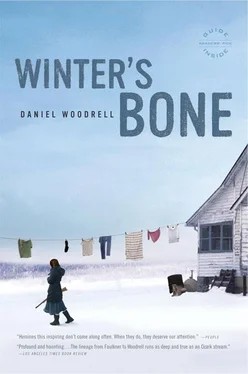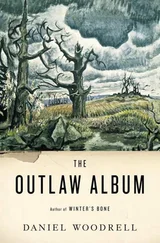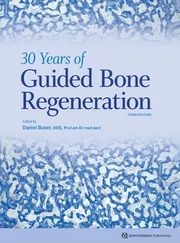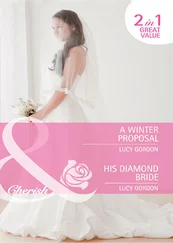“Well, I’m a Dolly, bred’n buttered, and that’s how I know Dad’s dead.”
He looked across the creek at the watchful Miltons, nodded.
“Those fellas’re kin, of course, right? They wouldn’t say boo to me, neither one, even though my dad has written bonds on the both of them, too, over the years. The idea I got from them was they didn’t know no Jessup Dolly, or anybody that matched that description.” He smoked while looking closely at Ree. “This thing has felt a little funny from the giddy-up. Smelled just a tad bit off. This house’n stuff of you-all’s didn’t cover the man’s bond, not nearly—you know that?”
“Nobody told me nothin’. I found out everything after.”
“Well, he was short on the bond, but a fella come into the office one evening, had a plastic sack of crinkled money and put it down to cover the rest. When I went over there to the jail, your dad didn’t seem a hundred percent sure he even wanted out of lockup, neither, which ain’t usually how they act, but he was sprung by breakfast. It seemed like somebody needed him sprung in a hurry.”
“He was a good crank cook.”
“So I’ve heard. Maybe that was it, they needed some batches run and wanted him for it.”
Ree said, “This fella with the money have a name?”
“Nope. He must’ve left it in his other pants.”
“What’d he look like?”
Satterfield glanced around the yard, up at the house, up the hill to the timber, said, “The plastic sack of cash is all I recall, kid.” He dropped his cigarette to the snow, rubbed it with the sharp glossy toes of his pretty town shoes. “You probly got this place about another thirty days, kid. That’s my guess.”
There was a sound in Ree’s head like a world of zippers zipping shut, and a sudden tilt factor engaged every place she looked. The creek shifted heights in her eyes and swayed overhead floppy as snapped string, the houses beyond warped skinny as ribs and knotted together in bows, the sky spun upright like a blue plate set on edge to dry. She had a feeling within of tipping over, tipping over somehow to dribble down and away, down and away bleakly to a place beyond reach.
She lunged at Satterfield, grasped the fuzzy lapels on his sheep coat, tugged.
“That’s it? That’s it? There ain’t nothin’ I can do?”
He pried her fingers loose, stepped backwards.
“No. No, I don’t think there’s nothin’ left to do.” He swatted his hair a couple of times, then began walking slowly toward the bridge, carefully placing his steps between snow and mud. He stopped at the bridge and stared at the clear water below running south, then turned back to her. “Nothin’ unless you can prove he’s dead. That’d sure ’nough turn things around. Dead men can’t be expected to show in court.”
Ree stood there wobbling in her soul until Satterfield reached his car. She turned to go up the porch steps with her thoughts twirling and saw Gail standing in the open doorway with her arms crossed. From inside came clanging voices as the boys excitedly examined the rich plunder of groceries, slamming cans into the cupboard, loudly staking claim to favored foods. Gail’s face pinched with concern so the freckles seemed to gather in a blot, and her eyes were narrowed. She said, “I heard that last thing he said, Sweet Pea, and don’t you do it. I know the way you are, how you go about things, and I’m sayin’, don’t you go back there. ”
Across the creek the white car began to move, pulled onto a mudflat between houses and circled about in a hurry to leave. Mud sprayed from the rut to daub the front porches.
Ree fell as much as sat to the top step, knees wide, chin down, and said, “How else is it goin’ to happen?”
REE WALKED down the Hawkfall hill with nothing watching her back but the sun. She kicked her boots scuffing loudly along the road and looked at thin smoke rails rising from chimneys below. Twice she turned about to stare toward home, but the antique truck was already beyond sight. Snow piles still lined the road, melting, but the fields were fast becoming mud acres with tattering white borders. Cows walking near the fenceline made sucking sounds as each hoof was pulled from the holding mud. Pouring sunlight rubbed the cowhides shiny and raised sweat on Ree’s face. Mamaw’s coat felt too heavy in the turning weather but she kept it on all the way down the slope and into the meadow of old fallen walls.
Disappearing snow left the old tossed stones plain amidst the puny winter weeds and spreading muck. Some stones were stacked two high and some lay in close clusters with stunted oak growing from the narrow spaces between. Cows had been grazed in the meadow and they’d walked bare paths into the grass and around the stones. Here and there small pieces of shattered stained glass glinted surprise colors from the cow-path mud.
The drive up to Thump Milton’s house was wide enough for two cars to pass and coated with pea gravel. The gravel gave way underfoot so that each step sounded like a shovel digging. Trees lined the drive and many birds sang from the limbs but their songs were not the same. Near the dun house there were two cars and two trucks parked. A redbone hound resting in a truck bed stood as she approached and barked.
The house door opened and Mrs. Thump looked out. She closed the door briefly, then came outside carrying a steaming cup. Mams hung to the belly of her stout frame and heaved as she advanced. Two other women stepped onto the porch behind Mrs. Thump and both had postures and chins that suggested they were her close relatives. Mrs. Thump’s white hair was done up in big pink rollers held in place by a mostly yellow scarf.
Ree reached for the steaming cup, smiling, and said, “I’m not really—” And the world flushed upside down in her eyes while her ears rang and she staggered, then the world flushed again and again and she stumbled across the gravel. One of Mrs. Thump’s rollers had jerked loose and dangled springy around her head as she pulled her big hand back to whack Ree another in the face, and Ree swung a fist at those blunt teeth in a red mouth but missed. The other women closed in with boots to the shins while more heavy whacks landed and Ree felt her joints unglue, become loose, and she was draining somehow, draining to the dirt, while black wings flying angles crossed her mind, and there were the mutters of beasts uncaged from women and she was sunk to a moaning place, kicked into silence.
WORDS WERE reaching her but none that she understood. The pain was dense and dazzling and traveled her body in pounding waves. It had been only black in her spirit until small slices of dull light began creeping toward the center of awareness from the rim, but her first brightened thoughts were jumbled and ungraspable. There were shovels, she heard shovels, several shovels digging around her, then she was hefted aloft and flying along in agony until crashed to a new ground that smelled of straw and feed sacks. She screamed landing. Her ears hummed ugly noise and her nose felt thickened. She tasted blood, spit marbles to the straw. Her tongue moved along the slick in her mouth to a leaking vacancy where two teeth had been.
“She’s crazy to’ve come here—wouldn’t you say that means she’s crazy?”
Only one eye would open.
“Her momma’s crazy, so there’s a good shot of her bein’ crazy, too.”
The women stood over her, spires of menace wearing lipstick and scarves. They saw her eye open and she sat up, aching in her ribs, her legs, her everywhere. Her teeth lay dirty in the straw, broken from her mouth, cap and root, and she stretched their way, fumbled both onto a palm, made a fist around them. She mumbled, “I ain’t crazy. I ain’t crazy.” She spluttered blood and dropped her teeth into a pocket of Mamaw’s coat. Her words were wounded in her mouth, crippled in shape but flung hard as a dying wail. “And I ain’t never goin’ to be crazy, neither!”
Читать дальше











